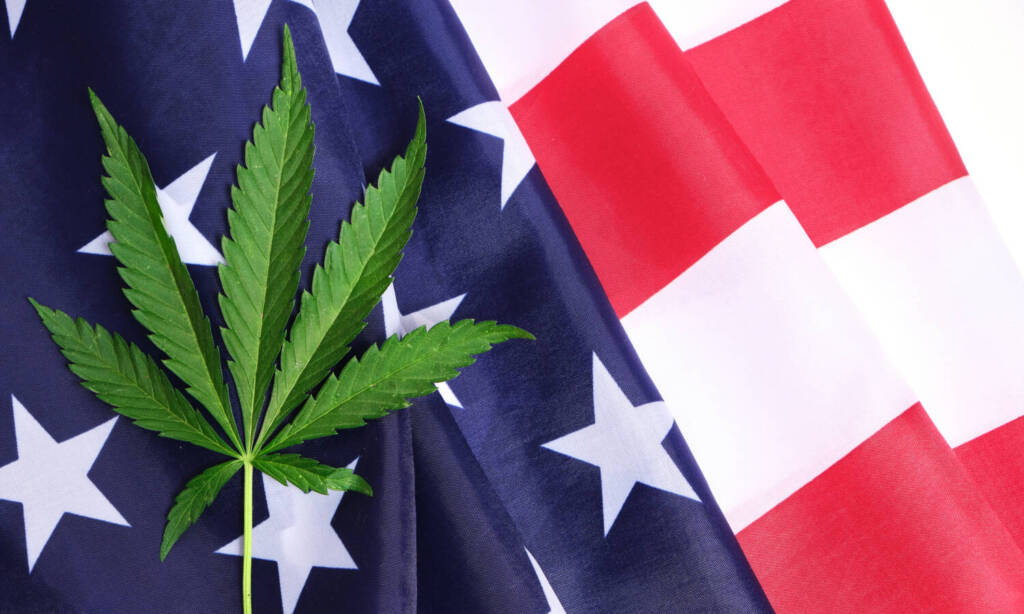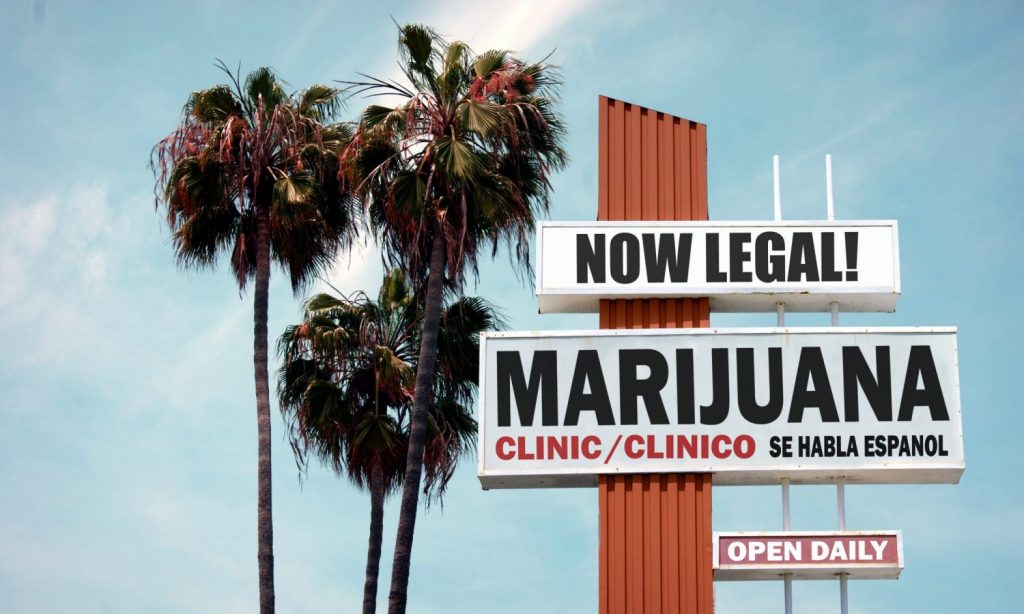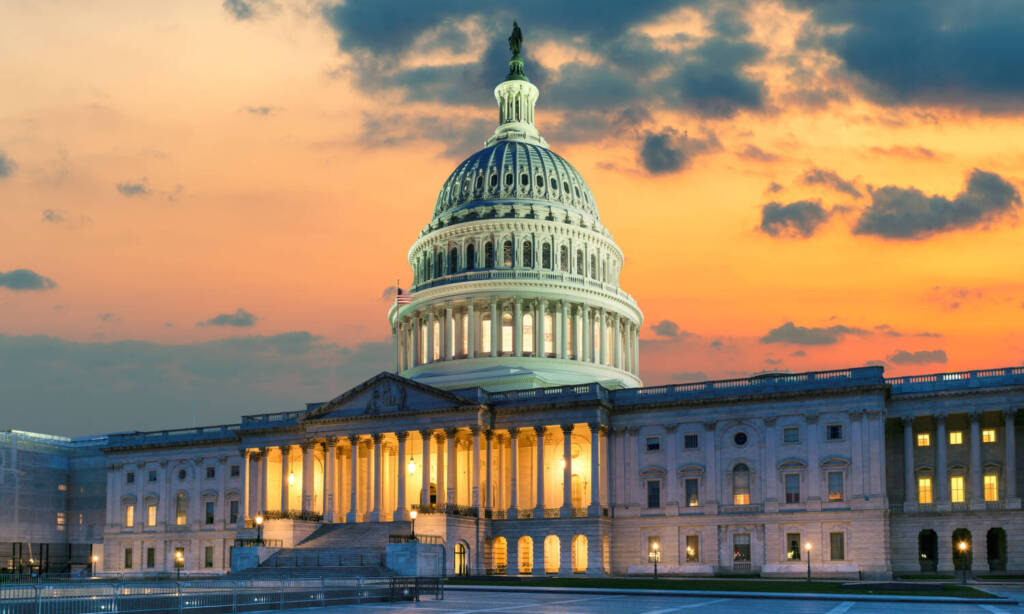What does the future hold for the cannabis industry in 2022? Benzinga spoke with several experts on the matter.
By
What can we expect from legalization in 2022? Benzinga Cannabis Insider brought together three renowned cannabis advocates to talk about the prospects of federal legalization in 2022, state-by-state legislation and what to expect from federal policy reform and what financial trends this long-awaited process might unleash.
Sarah Chase, executive director of the Council for Federal Cannabis Regulation (CFCR), Tom Zuber from Zuber Lawler, one of the top law firms working in the cannabis industry and Brady Cobb, lawyer and CEO of Bluma Wellness/One Plant, joined Benzinga‘s Javier Hasse and Elliot Lane. They began with the various cannabis bills in Congress and their impact in the cannabis industry.

Step-By-Step: Trade-offs Of An Incremental Pathway
Zuber called the regulatory landscape confusing and said he would be satisfied with the SAFE Act passing this year. “There are such a plethora of acronyms out there and it’s hard to keep track, a new one seems to arrive every quarter, but there are a few key ones that we’ve been focused on I think the SAFE Act has been with us since I don’t know, Clinton was president.” He highlighted that there seems to be a momentum to tackle banking reform. The SAFE Act would allow cannabis companies access to federal banking services.
He added that the States Reform Act “would legalize cannabis at the federal level or at least decriminalize it and that would have implications for banking and the interstate commerce of cannabis. He said the big question is whether to “wait for that big enchilada” or try and take the milestone victory and go for the SAFE Act.
Likewise, Cobb said he would be satisfied with the SAFE Act, noting that winning begets winning. “In today’s world of instant gratification and social media (…) things do not happen instantly. Everyone is very Veruca Salt in “Charlie and the Chocolate Factory” and that’s not how DC works. DC is about incrementalism, inch-by-inch.”
Empowering social equity and access to capital is vital, Cobb said. From a political standpoint, he sent kudos to Rep. Nancy Mace (R) for filing the State’s Reform Act and receiving the support of “some real companies in American industry” including “the Koch brothers” and Amazon. He emphasized the importance of achieving bipartisan support.
“When I first started lobbying in the senate we focused primarily on Senate republicans because that’s who we needed to flip, it was a very cold reception in those offices back in 2015 and it wasn’t until you saw some of the east coast states like Florida (…)l that we’ve got a little bit of a warmer reception (…) I think we really need to focus as an industry on what safe’s going to do from a crime prevention standpoint from a social equity funding,” Cobb added and referred to the SAFE Act as uniformly known in congress as the bill that has the “highest chance of passing. The CAO is DOA.”
RELATED: Sen. Chuck Schumer To File Cannabis Legalization Bill In April, Welcomes GOP Support
In terms of expungements, Cobb referred to the HOPE Act and recalled that “over 90 percent of the convictions that people have on their records are at the State level,” and therefore action is needed “because “you can’t force a state under the principles of federalism to do that.”
In agreement with Cobb, Chase considered that “one of the best ways to operate in DC is by being gently persistent. She noted the CAO should be discussed in more detail. “Even though it doesn’t reference medical use cannabis (…) it creates a pathway that’s more feasible” to “deal with regulation in a responsible and reasonable way,” Chase said. “Human health and safety aspects” will be regulated by the FDA and the CAO Act creates “a pathway for medical research for Pharma. The pharmaceutical route would include more safety data about dosing and effectiveness and efficacy.”

Raising The Bar
“If we are talking about social equity it is going to be much more difficult for small businesses to access the standards of federal legislation,” Cobb said adding that it is going to be “much harder for those applicants to enter the space when they got to get an FDA license to be able to conduct business as opposed to a very large federal excise tax. States Reform Act is the most passable piece of cannabis legislation that I’ve seen thus far solely because the larger the Republican caucus [are] on a libertarian standpoint, largely okay with states’ rights.”
RELATED: House Approves Marijuana Banking Bill, Attaches It To America COMPETES Act
Chase said that despite the burdens brought by regulations to the industry, these “ensure good standards and good practices in a number of different ways” and “eliminate a lot of corporate liability too with a big cost-saver.”
Chase said she views the U.S. Small Business Administration “stepping in to grant microloans to small and medium-sized businesses” as a step “to be able to really start to put the wheels of government into funding some of the businesses.”
Amazon And Charles Koch In Support Of The States Reform Act: What does it mean?
On January 25, Amazon.com, Inc. announced its support for the Republican-backed congressional bill that would legalize cannabis at the federal level and allow states decide how and whether to ban or regulate it. Congresswoman Nancy Mace’s (R) States Reform Act, released in November, was the first bill issued by the Republicans and it created quite a stir at the time.
Cobb noted that having one of the “most powerful and largest companies in the world jumping into the cannabis fray to support legalization” is “a great barometer from an overall standpoint of where we are as an industry and regards the States Reform Act as “very attractive because vests most of the authority with the state-level folks.”
RELATED: Amazon Supports GOP’s Marijuana Legalization Bill
Zuber focused on the endorsement of libertarian billionaire Charles Koch. “I think it’s a big deal that Koch came out in support. He’s such a powerful backer of Republican candidates across the country.” He mentioned the close ties between Koch and Republican members of Congress and his support of cannabis legalization as a milestone. “I find the Koch endorsement of cannabis legalization to be even more exciting [than Amazon’s], I think it’s a bigger milestone.”

Bluma’s CEO pointed at the fact that in an election year, the Republicans did a good job incorporating cannabis regulations which have normally been in the Democrats’ camp. “I think Republicans are smart enough to sense that that’s an opportunity to both follow through on states rights and libertarian principles” and “seize a win ahead of the midterms.”
Zinger’s Ask
After providing feedback to the detailed considerations of guest speakers, Hasse and Lane opened the floor for questions from folks on to the live stream.
Q: Can we get some clarification surrounding safe banking? Visa and MasterCard recently stated they will not support the industry until federally legal. Does SAFE include consumer credit/debit card use?
Cobb explained that the SAFE Act “will trigger FinCEN and treasury to update their anti-money laundering guidance.” He explained that one of the biggest problems with cannabis, banking cannabis, and credit card processors is that “if they facilitate a transaction they’re technically triggered into potential anti-money laundering guidance” and could have some liability in those compliance departments of the banks as well as credit card companies. “That’s just a risk they can’t take given the volume of business that they do. SAFE will trigger that review and the updated FinCEN guidance will be what will hopefully provide cover fire for credit card processors, and potentially, U.S. exchanges.” He advised people interested in cannabis reform to pay attention to the SAFE Act.
Q: What would you suggest regular people can do to push legalization forward?
The experts concurred that, although writing and calling legislators is not usually regarded as an impactful measure, it can move the curve on the Hill. Chase explained that legislators are not used to the cannabis industry and they need to see and interact with cannabis workers and patients to gauge the benefits of federal legalization. “Open the doors, let them see your work. Education is the key because it will destigmatize, legitimize and normalize this industry,” Chase advised.
Cobb agreed that letters and calls can have a “massive impact” when staff reports to legislators about them. “If people are writing and talking about how this is directly affecting their lives, and how they want to have the opportunity to do that (…) It absolutely matters.
“You can’t underscore how important that is and if you’re not doing it already start it now because now we’re dealing with all of our natural predators, alcohol, tobacco, and pharma who are watching what we do very closely as an industry, they’re very good at making the phone rings, and they have about a 60-year head start in lobbying,” Cobb explained.
Chase emphasized the need to extend advocacy narrative beyond the recreational use of cannabis and provide a holistic perspective of the industry for decision-makers to thread the needle.
“If there are any MSO folks out there that are listening from the C-suites of any cannabis operators (…) have your local state and federal representatives come to your farm and spend the time to not only see how it’s cultivated, [also to] see the level of sophistication that you’re operating with,” Cobb added.
This article originally appeared on Benzinga and has been reposted with permission.


